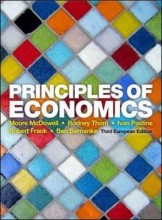Social Judgement - Reason, Intuition and Heuristics
3 important questions on Social Judgement - Reason, Intuition and Heuristics
Disentangling Ease of Retrieval from the Amount of Information Retrieved
We have seen that the availability heuristic involves judging the frequency of an event, the size of the category or the probability of an outcome by the ease with which relevant instances are brought to mind. Note: this has nothing to do with the number of instances brought to mind.
Biased assessments of risk
One area in which the availability heuristic rears its head in everyday life harks back to the discussion of negative information being overreported in the news. This has the effect of making some people more fearful than might be appropriate. But not all hazards are equally overreported, some recieve more news coverage than others. As a result, if people assess risk by ease with which they can bring up relevant episodes to mind, their assessments should be predictable from how much press attention various hazards recieve.
Biased estimates of contributions to joint projects
Another example of how the availability heuristic can distort everyday judgment involves the dynamic of joint projects. Afterwards you decide who gets the bulk of the credits.
People tend to overestimate their own contributions to such projects. Because we devote so much energie and attention to our own contributions, they should be more available than the contributions of everyone else.
The question on the page originate from the summary of the following study material:
- A unique study and practice tool
- Never study anything twice again
- Get the grades you hope for
- 100% sure, 100% understanding
































